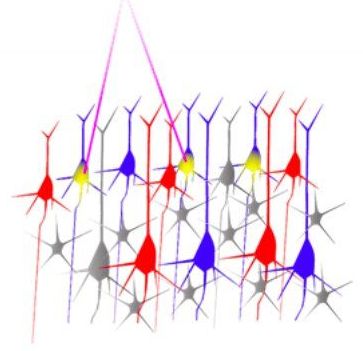Humans have the innate ability to store important information in their mind for short periods of time, a capability known as short-term memory. Over the past few decades, numerous neuroscientists have tried to understand how neural circuits store short-term memories, as this could lead to approaches to assist individuals whose memory is failing and help to devise memory enhancing interventions.
Researchers at Stanford and the Janelia Research Campus, Howard Hughes Medical Institute have recently identified neural circuit motifs involved in how humans store short-term memories. Their findings, published in Nature Neuroscience, suggest that memory-related neural circuits contain recurrently connected modules that independently maintain selective and continuous activity.
“Short-term memories are of approximately 10 seconds or so, for example, if you needed to remember a phone number while you looked for a pen to write the number,” Kayvon Daie, one of the researchers who carried out the study, told Medical Xpress. “Individual neurons, however, are very forgetful, as they can only remember their inputs for about 10 milliseconds. It has been hypothesized that if two forgetful neurons were connected to each other, they could continuously remind each other of what they were supposed to remember so that the circuit can now hold information for many seconds.”
